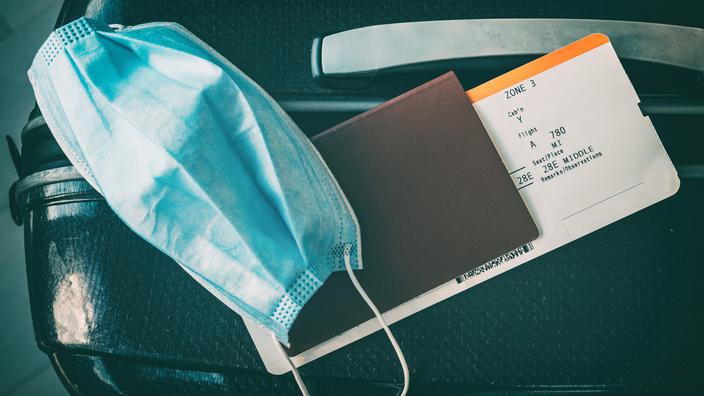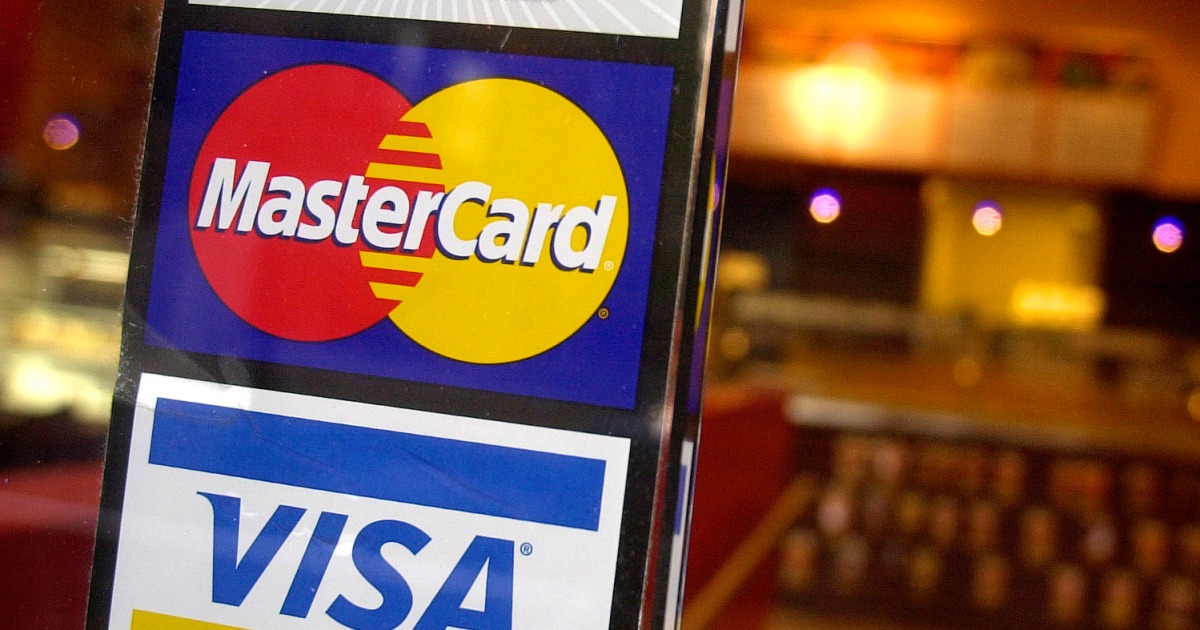The Covid-19 pandemic is likely to fundamentally change our ways of traveling: antigen test or PCR before taking a plane, wearing a mask, quarantine or even a vaccine ... All this is now part of the trip abroad, in the same way as the passport or visa.
Solid coverage for cancellations, health costs or repatriation will more often be necessary or even compulsory since 23 countries, and not the least (Thailand, Costa Rica, Brazil, Cambodia, etc.), now require it.
In this context, it becomes imperative to know to what extent your insurance covers you before packing your suitcase, and to ask yourself about the advisability of taking out specific travel insurance which, at this stage, remains optional for a French traveler.
Read the file: Travel insurance: all our advice
Do I need to take out additional travel insurance?
Often considered a "
nice to have
", a gadget that we can afford not to take, travel insurance, especially in its part health costs, in reality covers health and social guarantees that would be difficult. to be taken care of alone.
“The French are well covered by Social Security and their complementary health in France.
And they often think it will be the same abroad.
However, as soon as they cross the border, the probability of spending € 50,000 on medical expenses is not zero.
This is true in
Europe
and even more so in the rest of the world, ”
explains Quentin Poizat, Leisure and Tourism sales director at the insurer Allianz Partners France.
The rates charged by American, Australian or Japanese hospitals are particularly known to be exorbitant.
“The health crisis we are experiencing has heightened the awareness of travelers of the risks they run in going abroad without insurance.
As evidenced by the significant increase in subscription rates since the start of the pandemic, ”
adds the professional.
As a reminder, travel insurance generally costs 3 to 6% of the price of the getaway.
And on a hospitalization of 20,000 € in Spain, Social Security will reimburse on its scale only 1,250 €.
Read also: Covid-19 and travel: where can the French go?
Our map, country by country
What travel insurance covers the consequences of Covid-19?
The coronavirus pandemic which has affected the whole world (or almost) in just a few months has shaken up the world of travel insurance, which has adapted and continues to do so day after day.
In fact, the consequences of epidemics and pandemics were not originally covered by any insurer in the market.
They were long-standing blanket exclusions.
Professionals who cannot insure a so-called "systemic" event, likely to affect all of their policyholders at the same time and in all countries.
Despite this exclusion, in practice, insurers have shown flexibility from the first weeks of the epidemic by still granting guarantees.
Read also: Travel insurance: why it's crucial to take the time to compare
And very quickly, they adapted to the epidemic situation to enrich their insurance guarantees, either directly in the contract, or in the form of a “Covid extension” invoiced for a few additional euros.
“Today, it's complicated for people to take a trip, the probability of not leaving or of being 'stuck' there is high.
As a travel insurance broker, we try to allow them to travel serenely, ”
underlines Geoffroy Bonnet-Eymard, Director of Chapka Assurances (AON).
Thus, most travel insurers now take charge of “financial contingencies linked to a pandemic” (current and future).
In short: cancellation costs if the insured or a member of his immediate family is ill, on-site health costs if he contracts the disease during his stay and accommodation / extension of stay in the event of quarantine, if he or his family is declared a contact case, for example ...
"Finally, we consider Covid-19 as a" normal "disease so that the guarantees can play.
And other advances could still emerge, such as travel reimbursement in the event of failure to obtain the Covid test on time (a document that has become essential for many destinations) ”
announces Chapka Assurances.
Read also: Arrival in Rome of the first “Covid-free” flight between the United States and Europe
"We have added to our contracts many guarantees that did not exist until then, for example the possibility of canceling your trip in the event of quarantine",
specifies Allianz Partners.
On the other hand, the consequences of pandemics such as confinement, the closure of a border or quite simply the renunciation of travel due to the “fear of travel” remain excluded.
Likewise,
“a traveler who decides to go to a
country advised against by the Ministry of Foreign Affairs
will not be covered for health costs related to this disease or in the event of quarantine.
However, it will remain covered in the event of a diving accident or in the event of another illness, ”
adds Chapka Assurances.
Read also: Covid-19: will you need to be vaccinated to travel in the coming months?
What exactly does the travel insurance cover for my Visa or Mastercard credit card?
To begin with, you must have paid for your trip with your Visa or MasterCard credit card to be able to benefit from the insurance guarantees included.
Travel insurances included in “classic” bank cards are light.
They do not include the cancellation guarantee and are limited to repatriation, cancellation for very specific causes (illness, death of a member of your family, serious damage to your home or redundancy, etc.) and the costs of health (with limits and restrictive deductibles).
As for luggage, they are insured only when they are on the plane, but not during the stay, and for relatively small amounts.
These cards are sufficient for trips to Europe in major capitals without risky activities.
Do high-end Visa Premier or MasterCard Gold type bank cards offer superior guarantees, almost equivalent to market insurers for health costs (with, however, slightly lower ceilings: € 30,000 against € 100,000 in Europe, € 150,000 against € 500,000 in the USA).
In all cases, the guarantees present in the credit cards do not apply to trips over 90 days.
But the big difference lies in the cancellation guarantee.
Read also: Trip cancellation insurance, instructions
This is triggered for "all causes" with the main insurers (even for example if your pet is sick or in the event of a sprain resulting in an inability to travel), while it remains quite restrictive on high bank cards. of range.
“Bank card insurance has followed the post-Covid movement to extend coverage, but to a more limited extent, especially on the cancellation guarantee.
For example, they do not cover accommodation costs in the event of a quarantine, nor last minute cancellation due to a fever at the airport.
In general, they are less reactive and will take longer to reimburse, because travel insurance is not their primary business, ”
analyzes Geoffroy Bonnet-Eymard (Chapka Assurances).
Read also: Travel vouchers canceled due to Covid-19: how to use them?
How to choose the right travel insurance?
Many travelers think that the risk when buying a trip is limited to the cancellation fees and the cost of the stay.
To make the right choice, you must first know what it is possible to insure: cancellation of course, but also health costs, repatriation, loss of luggage, interruption of stay ... Insurers today offer packages or “multi-risk insurance” which combine all these guarantees at the same time and reinforce those already acquired in bank cards or complementary health insurance.
To compare properly, it is important not to stop at the list of guarantees but to also look at the coverage limits and associated services (doctor accessible by telephone 24 hours a day, local translator, etc.).
Do I need to take out insurance at the same time as purchasing my trip?
For cancellation insurance, the question does not arise, because it must legally be taken out when purchasing a trip (or within 48 hours) in order to be valid.
However, the cost of treatment, loss of luggage, repatriation and interruption of stay can be purchased after, or even until the day before departure.
The advantage of having insurance when purchasing the trip is above all a form of peace of mind, and allows you to be sure not to forget afterwards.
On the other hand, this does not leave time for reflection and / or comparison.
How to use travel insurance?
Like all insurance, we hope we will never need it.
However, if you need to use your travel insurer, and in order not to waste too much time looking for useful information, know that you must have two essential elements with you: the number of the telephone platform to contact from the France or abroad, and your insurance subscription number.
With these two sesames, the insurer will confirm (or not) to you the good management of your problem (cancellation, accident, loss of luggage, illness…) and will take care of opening your file.
He will then send you the list of supporting documents to be provided to trigger the implementation of the guarantees, such as the medical certificate or the invoice for cancellation costs…
"All the procedure to be followed in the event of a claim is recalled when the contract is taken out. .
Please note, in the event of a claim, the last name will not be sufficient to identify you, insurers will need the membership number.
Then, the claims service will take care of everything quickly ”
confirms Chapka Assurances.








